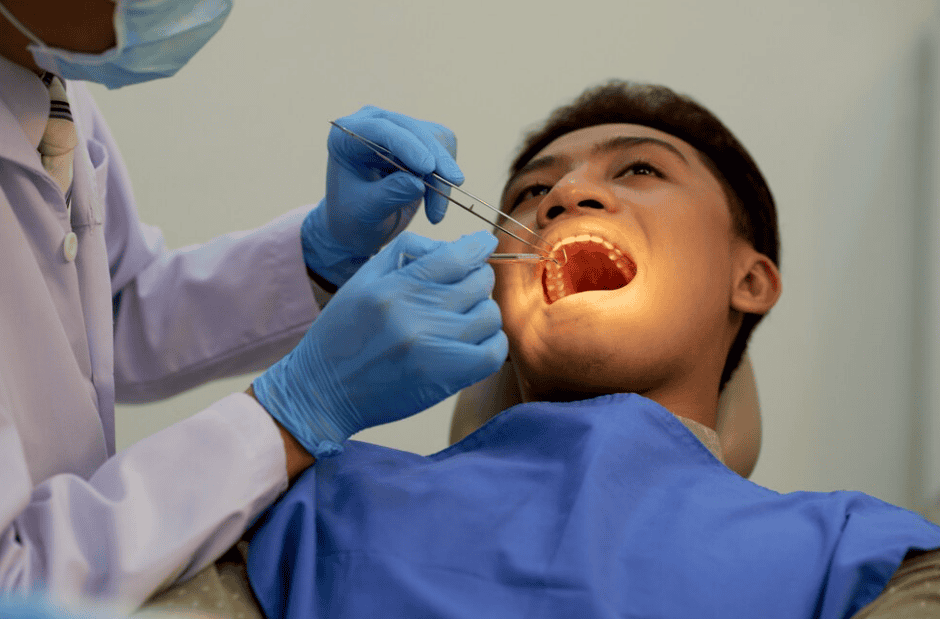Suboxone, a medication combining buprenorphine and naloxone, has become a cornerstone in treating opioid use disorder (OUD). Often prescribed as sublingual films that dissolve under the tongue, Suboxone offers a safe and effective way to manage OUD symptoms and cravings. However, this medication’s benefits come with a potential downside: an increased risk of poor dental health.
This article explores how Suboxone sublingual films can contribute to dental problems and outlines strategies to mitigate these risks.
A qualified medical practitioner can help you understand more about the serious problems caused by Suboxone. Seek an attorney who specializes in mass torts to find out what your legal options are.
Factors Contributing to Poor Dental Health with Suboxone
One of the primary factors behind Suboxone-related dental issues is xerostomia, commonly known as dry mouth. Suboxone works by partially activating opioid receptors in the brain, reducing cravings and withdrawal symptoms. As a side effect, this activation can extend to other areas controlled by the nervous system, including the salivary glands.
Reduced saliva production disrupts the mouth’s natural defense system, leaving teeth vulnerable to decay. Saliva washes away food particles and neutralizes acids produced by plaque bacteria, both crucial functions for preventing cavities. When saliva flow diminishes, these harmful acids can erode tooth enamel, leading to cavities.

Suboxone can also impact dental health by altering taste perception. Some individuals on Suboxone report a metallic taste or a general decrease in taste bud sensitivity.
These taste changes can significantly impact dietary habits. Unpleasant tastes may lead to decreased appetite and a shift towards sugary drinks and processed foods that are often more palatable but detrimental to oral health.
A balanced diet rich in fruits, vegetables, and calcium is essential for maintaining strong teeth and bones. When taste alterations steer individuals away from these healthy options, they become more susceptible to dental problems.
Suboxone treatment can also indirectly contribute to poor dental health by influencing cravings. While Suboxone effectively reduces opioid cravings, it may not eliminate them. Some individuals on this medication may experience cravings for sugary drinks or foods as a way to self-medicate or cope with stress.
Sugar consumption is a major risk factor for cavities, as plaque bacteria thrive on sugary substances, producing acids that damage teeth. Effectively managing cravings and avoiding sugary substitutes is crucial for protecting oral health during Suboxone treatment.

Strategies to Mitigate Dental Issues
Fortunately, several strategies can help individuals on Suboxone maintain good dental health. Regular checkups and cleanings are vital for the early detection and prevention of dental problems. The American Dental Association recommends scheduling them every six months.
For individuals on Suboxone, more frequent visits, perhaps every three to four months, may be advisable to monitor any potential dental issues arising from dry mouth or medication side effects.
Consistent oral hygiene practices are essential, in addition to regular dental visits. Brushing teeth twice a day with fluoride toothpaste and flossing daily are the cornerstones of good oral hygiene.
Proper brushing technique is crucial for effectively removing plaque and food particles. Brushing should involve gentle back-and-forth motions on the chewing surfaces, inner and outer surfaces of each tooth, and along the gum line.
A sugar-free mouthwash can also be a helpful addition to an oral hygiene routine, providing additional cleansing and freshening breath.
Dietary modifications can significantly reduce the risk of dental problems associated with Suboxone. Staying hydrated by drinking plenty of water throughout the day is crucial. Water helps stimulate saliva production and washes away food particles. Limiting sugary drinks and processed foods is also essential. Sugary substances create a breeding ground for cavity-causing bacteria.
Opting for healthy snacks like fruits, vegetables, and nuts can satisfy cravings while providing essential nutrients for oral health.
Using Suboxone Sublingual Films
Suboxone remains a highly effective medication for treating opioid use disorder. However, it is essential to be aware of the potential side effects, including the increased risk of dental problems.
By going for regular dental checkups, following proper oral hygiene practices, and planning dietary modifications into their routine, individuals on Suboxone treatment can effectively manage their dental health.


